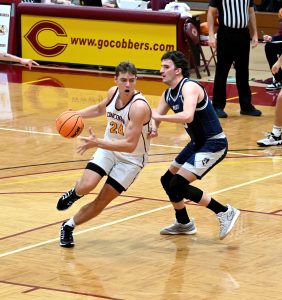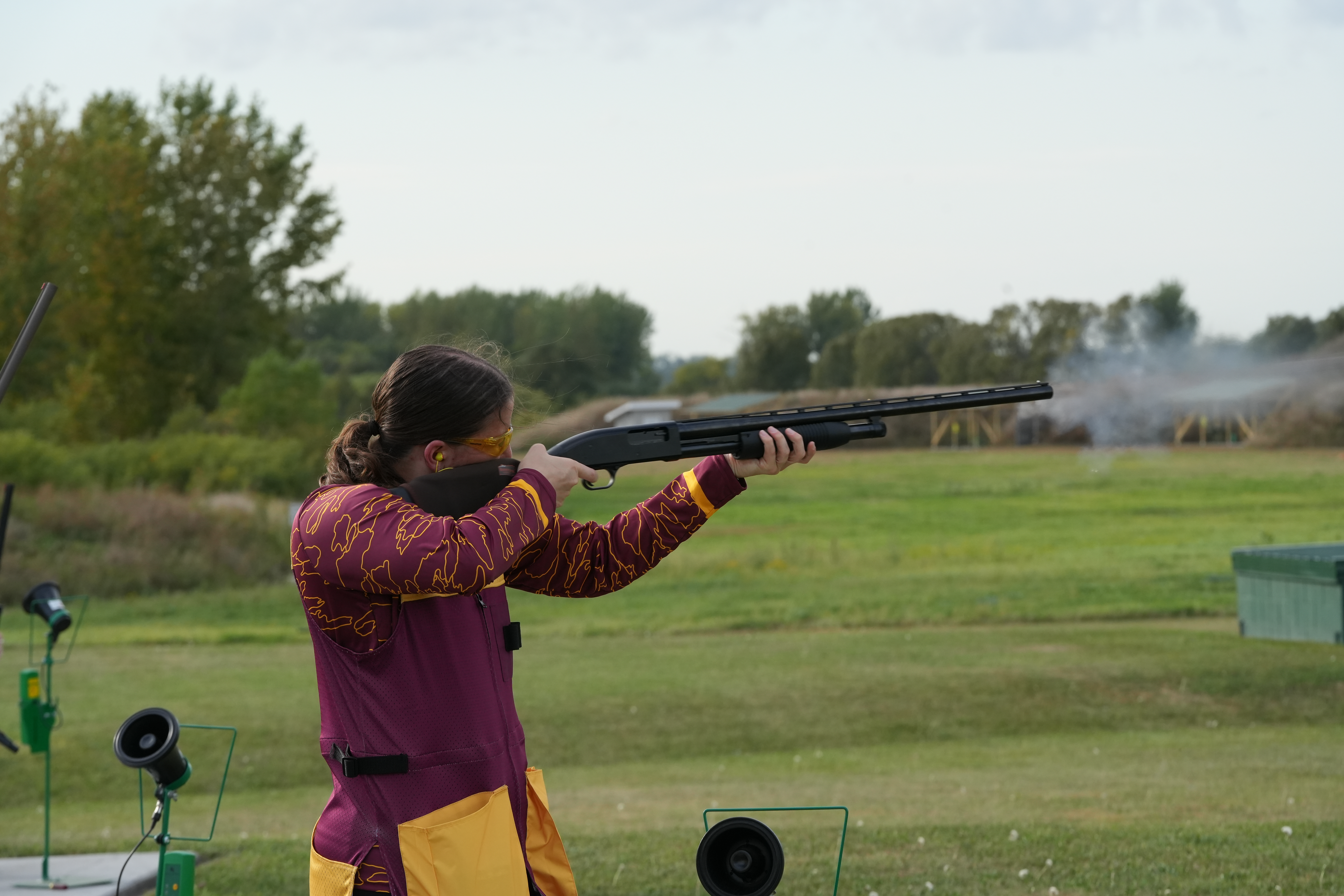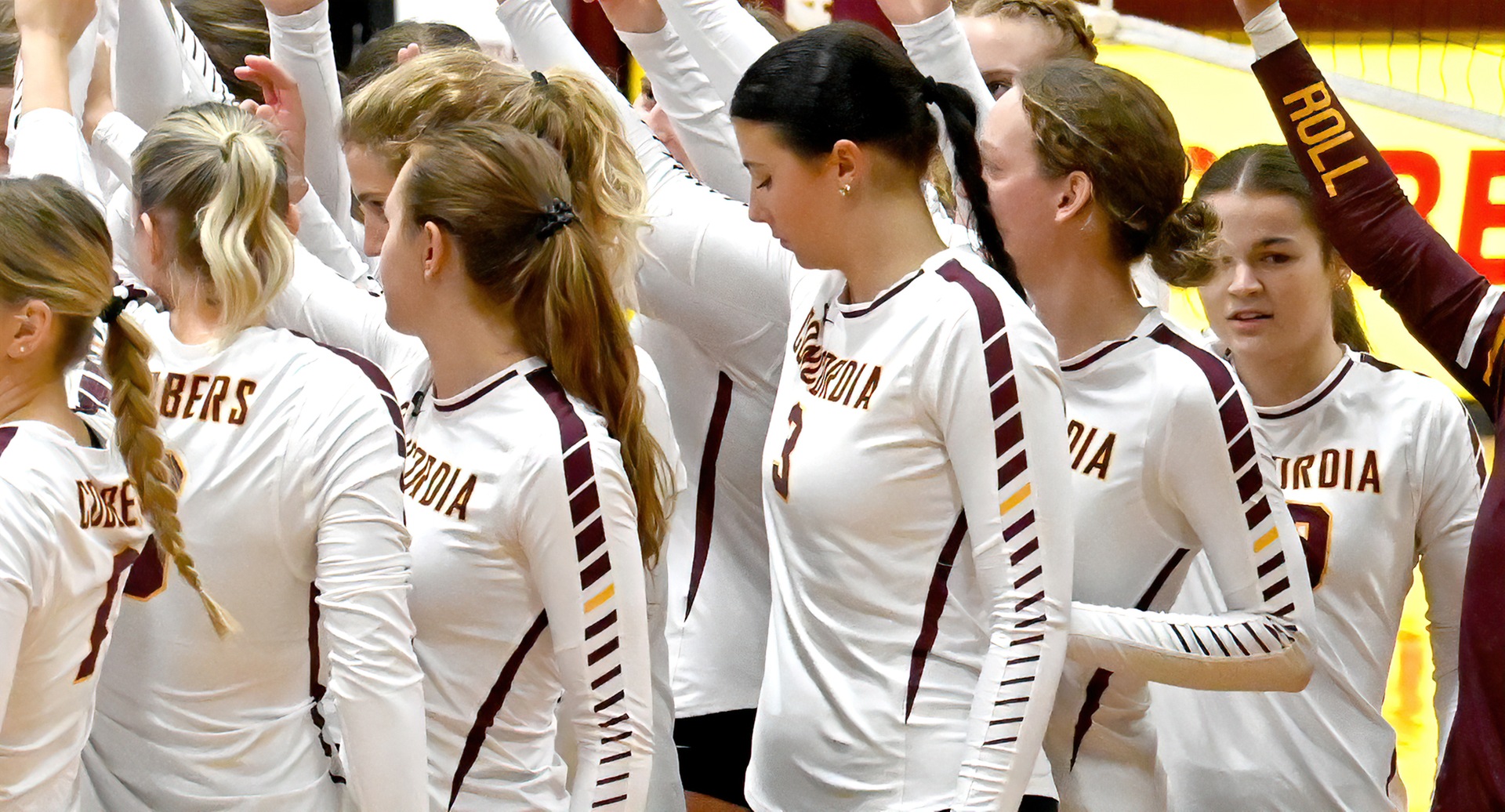The term student-athlete is a loaded classification that some may not fully understand. For the four years that these students are pursuing a degree, they have a 40-plus hour a week “job” so that they can maintain that status of a student-athlete.
If one were to look into the schedule of an athlete, one would see a designated slot of two or three hours set aside in their day for practicing with the team. What one may not see are those little details that are required by athletes, in addition to scheduled practices.
“Every day I would say I spend anywhere from three to five hours … dedicated to football,” Junior Joshua Berg said. “Practice is just part of that time because I also have to take time to work out and also watch film and study my opponents.”
The women’s hockey schedule seems quite similar. According to senior Cassandra Petrich, the hockey team has to show up to practice 45 minutes early to get dressed and warm up. Practices usually are an hour and a half long, but that hour and a half does not include the daily hour-long lifting session that the team has outside of practice time.
Games are a couple hours long, not including pregame meals, warm-ups and travel to away games.
It is hard to pinpoint a specific number of hours student-athletes spend in sports related activities, but alongside those hours are the hours a student spends in class and on school work.
“I like to have a planner so I can write down everything that I need to accomplish that day,” Berg said.
Being organized helps keep the athletes on track, but a little hard work doesn’t hurt either.
“You just have to make sure you get ahead,” senior basketball player Casey Bruggeman said. “If you are getting stressed, just get yourself in the library and go to work.”
Sometimes even the littlest of breaks make all the difference for these student-athletes.
“It requires a lot of time management,” senior soccer player Elizabeth Bitzan said. “You have the little gaps of time between classes for doing homework and then bus trips as well.”
For a variety of athletes, away games aren’t a setback for their school work. They take advantage of the hours on the bus and even the little time spent awaiting game time.
“I try to do a lot of homework on the bus or at the hotel,” Petrich said. “When everyone else is sleeping, I will get up at 7:30 and do my homework in the lobby area.”
Besides being a student and an athlete, a wide number of athletes are also involved in other extracurricular activities. In addition to basketball, Bruggeman is a senior member of Student Athlete Advisory Committee and a co-leader with Fellowship of Christian Athletes. He devotes anywhere from two to four hours a week between the two organizations. The same can be said for Bitzan, who is a participant in the Concordia Choir and a student missionary through a group called Focus.
Some student-athletes also have part-time jobs.
“When I am not in class, I probably have hockey,” Petrich said. “When I’m not at hockey, I am probably at work, and then when nothing else is happening I am probably doing my homework. I don’t have a life.”
When athletes look at their schedules, they can see that being a student-athlete is preparing them for their futures.
“I want to be a teacher and coach,” Petrich said. “So going to practice right now while student teaching has helped me plan my lessons around hockey. It’s almost the same schedule as it would be once I actually have a job.”
“I am learning the important skills of time management and organization through balancing both school and athletics,” Berg said. “These skills are very important no matter what field you are looking to go into.”
While at times it may seem like the only outcome from being a student-athlete is stress and the occasional mental breakdown, the athletes do see the benefits of being so involved.
“School is the main thing that stresses me out,” Bruggeman said. “But then I’ll go to basketball and am just happy to do it.”
“Athletics is kind of like a stress reliever,” Bitzan said. “You just go out there. It doesn’t matter what you have on your plate, you’re just having fun playing a sport.”







Be First to Comment